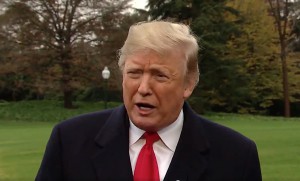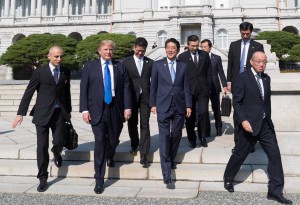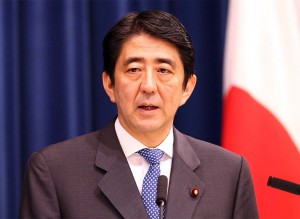Japanese officials believe the Trump administration will avoid slapping higher tariffs on Japanese cars and auto parts that are imported into the United States as it faces off with China and the European Union on various trade issues.
While the majority of vehicles that Toyota, Honda and Nissan sell in the United Sates are built at factories in the U.S., they also import large number of finished vehicles as well as key components, such as engines and transmissions.
In total, Japan’s auto industry would suffer a value-added loss of about 8 billion euros or $9 billion and Germany would lose 7 billion euros, according to a new study by the German research institute Ifo. South Korea’s auto industry would suffer a loss of more than 3 billion euros. The Ifo study looked at long-run effects, about 90% of which typically occur in five years and 99% in 10 years.
Economists at Daiwa Institute of Research went a step further in characterizing the potential fallout of U.S. action. Auto tariffs are “life or death” for Japan, outweighing the U.S.-China trade war as a risk, they said in a report.
(Commerce Dept. report could trigger imports on auto imports. Click Here for the story.)
Car and auto part exports made up 20% of Japan’s total exports in 2018.
Press reports originating in Japan suggest authorities are sticking to the view that the U.S. won’t apply higher tariffs on imports of Japanese cars and auto parts so long as negotiations toward a trade deal continue, according to Tokyo’s lead negotiator with Washington
The comments from Economy Minister Toshimitsu Motegi come as policy makers in Japan and Europe fret about the findings of a U.S. Commerce Department report on vehicle imports submitted to Donald Trump earlier this week.
The global auto industry has long been a favorite target of the Trump and the White House, which has threatened to raise U.S. tariffs on car and auto part imports as high as 25% if they are deemed a U.S. security risk. The Commerce Department is believed to have found that auto imports do represent a threat to U.S. national security.
(Click Here for more on that report from the Commerce Department.)
Motegi said he had previously confirmed with U.S. Trade Representative Robert Lighthizer that Washington wouldn’t apply higher rates amid talks on a trade deal. Prime Minister Shinzo Abe had also confirmed with Trump that existing rates would stay put while negotiations took place, he added.

President Donald Trump will soon have to decide if using punitive tariffs makes sense in negotiations.
Motegi’s comments echo the response of the European Union to the submission of the report, reminding the U.S. to keep to its word on holding fire while talks continue.
The 28-nation bloc is readying retaliatory tariffs totaling 20 billion euros or $22.7 billion of U.S. goods should Trump follow through on his threat to impose duties on EU cars and auto parts. Japan has taken a more cautious view on revealing how it might respond, with no such counter measures unveiled so far.
Trump has 90 days after officially receiving the report to decide whether to act should the department conclude that auto imports are a security threat.
(White House tells automakers China tariffs coming down. Click Here for the story.)
The negotiations on a bi-lateral U.S.–Japan trade deal that was announced last September by Trump and Japanese Prime Minister Shinzo Abe have yet to start, partly due to ongoing talks between Washington and Beijing.



Japan has had the monopoly on one way trade for far too long. Hope Trump sticks it to the Japanese the way they’ve stuck it too Americans for the last 45+ years of trade imbalance.
Then he should go after Korea the same way